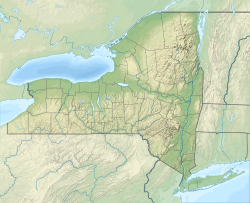Background
The game was originally scheduled for Monday, December 26, the week after the conclusion of the regular season. The AFL–NFL merger agreement of June 1966 called for a "world championship game" between the league champions. When a date of January 15, 1967, was established, the AFL title game was moved to January 1, same as the NFL championship game in Dallas. The AFL game was at 1 p.m. EST, televised by NBC, and the NFL game followed at 4 p.m. on CBS. [1]
Like the NFL, the host team for the title game was alternated between the divisions, regardless of record. In the AFL, the Eastern division hosted in even-numbered years and the Western in odd; home-field advantage was not adopted until 1975.
Kansas City Chiefs
The Kansas City Chiefs finished the 1966 regular season with an 11–2–1 record and clinched the Western Division title five weeks earlier, on November 27. [8] [9] Quarterback Len Dawson finished the season with 2,527 passing yards and 26 touchdowns, with only 10 interceptions, giving him a 101.7 passer rating. The team's top wide receiver was Otis Taylor who caught 58 passes for 1,297 yards and 8 touchdowns; Chris Burford also contributed by catching 58 passes for 758 yards and 8 touchdowns. Mike Garrett was the team's leading rusher, gaining 801 yards and 6 touchdowns. Other reliable options included Curtis McClinton (540 yards, 4 touchdowns) and Bert Coan (521 yards, 7 touchdowns). The Chiefs' offense consisted of five All-Stars: Len Dawson, Curtis McClinton, Otis Taylor, Jim Tyrer, and Ed Budde. [10]
Their defense featured six All-Stars: Johnny Robinson, E.J. Holub, Sherrill Headrick, Bobby Bell, Buck Buchanan, and Jerry Mays. [10]
Game summary
In a chilly drizzle, Kansas City broke open a tied fierce 7–7 battle and dominated the rest of the contest from there on, forcing four turnovers (without losing any themselves) and outscoring host Buffalo 24-0 over the last three quarters.
On the opening kickoff, Fletcher Smith's short kick was fielded by defensive end Dudley Meredith, who promptly fumbled the ball, and KC punter Jerrel Wilson, who also played on the kick coverage team, recovered it for the Chiefs on the Bills 31-yard line. This led to the first score of the game, a 29-yard touchdown pass from Len Dawson to tight end Fred Arbanas. After an exchange of punts, Buffalo tied the game when receiver Elbert Dubenion raced ahead of defensive back Fred Williamson, "the Hammer", caught a pass from Jack Kemp at the Chiefs 45, and raced all the way to the end zone for a 69-yard touchdown reception.
Later on, Mike Garrett's 27-yard punt return gave the Chiefs a first down on the Bills 45-yard line. After a few plays, Dawson made a key 15-yard completion to Arbanas advancing to the Buffalo 29. It was the last catch of the day for Arbanas, who ended up leaving the game with a separated shoulder; however, it paid off big time as Dawson threw a 29-yard touchdown pass to Otis Taylor on the next play, giving the Chiefs a 14–7 second quarter lead. Buffalo responded with a drive deep into Chiefs territory, featuring Kemp's 30-yard completion to rookie receiver Rob Burnett to the Kansas City 12-yard line. But in what turned out to be one of the most crucial plays of the game, Kemp's next pass resulted in a costly interception in the end zone by safety Johnny Robinson, who returned the football 72 yards to the Bills 28. Mike Mercer eventually cashed in the turnover with a 32-yard field goal that gave the Chiefs a 17–7 halftime lead. [7]
The third quarter was a defensive struggle with each team punting the football twice. Near the end, Kansas City got possession of the football on the Bills 42-yard line, but failed to score when Mercer missed a 49-yard field goal attempt.
The Chiefs put the game away with consecutive touchdown drives in the fourth quarter. First, Dawson's 45-yard completion to Chris Burford gave the team a first down at the Buffalo 4-yard line. Garrett then ran the ball on the next four plays, concluding with a 1-yard touchdown run. On the first play of Buffalo's next drive, receiver Glenn Bass lost a fumble that Bobby Hunt returned 21 yards to the Bills 20-yard line, which led to another Garrett touchdown run, the final score of the game from 18 yards. Footage of the play shows that Garrett was about to throw a halfback option pass but a heavy rush from Buffalo's defense prevented it, forcing Garrett to run. [7] Buffalo could do nothing with their next drive, and on their final one of the day, Kemp was intercepted by Emmitt Thomas. [11] [12]
Dawson completed 16 of 24 passes for 227 yards and two touchdowns and ran for 28 yards. Garrett rushed for 39 yards and two touchdowns, caught 4 passes for 16 yards, returned a kickoff for 3 yards, and added another 37 yards on 3 punt returns. Kemp completed 12 of 25 passes for 253 yards and a touchdown, coupled with two costly interceptions. Burnett caught six passes for 127 yards. [13]
This page is based on this
Wikipedia article Text is available under the
CC BY-SA 4.0 license; additional terms may apply.
Images, videos and audio are available under their respective licenses.

